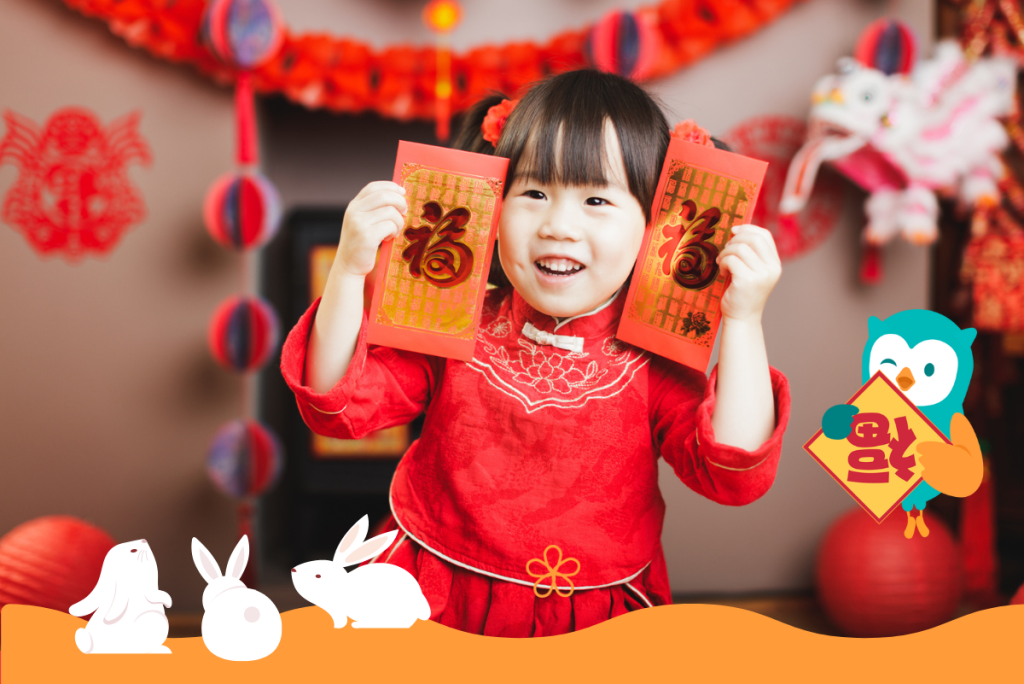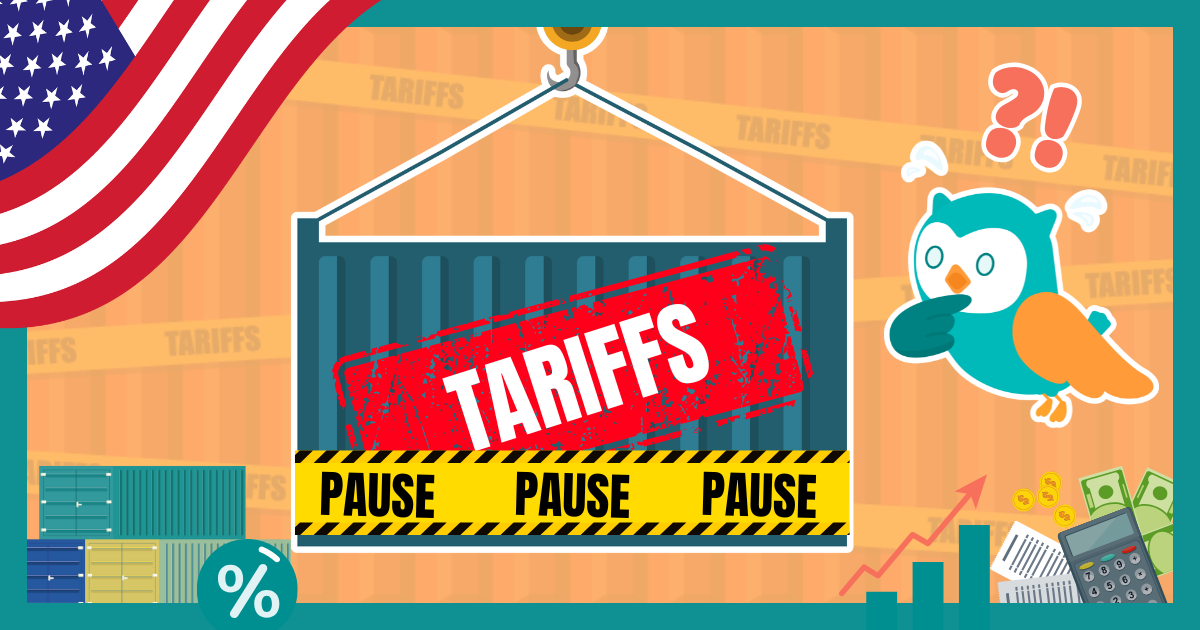Note: It was announced in November 2023 that MoneyOwl will be acquired by Temasek Trust to serve communities under a re-purposed model, and will move away from direct sale of financial products. The article is retained with original information relevant as at the date of the article only, and any mention of products or promotions is retained for reference purposes only.
______________
One major traditional aspect of the Chinese Lunar New Year is the practice of giving money in red packets, commonly known in Singapore as “Hongbao or 红包”.
The red, pink or gold colours of the packet symbolise good luck and prosperity, and the money contained within is meant to bring good fortune to the recipient. It is typically given by married persons to children or younger unmarried adults to wish them well and to help them financially.
2023 is the first year since 2020 when we are able to celebrate Chinese New Year without COVID-19 restrictions. Judging from the long queues for new notes and busy streets over the weekend, many families had enjoyed a rambunctious Chinese New Year.
At the start of the year of the Rabbit, your children may have amassed a tidy sum of hongbao money from generous relatives and friends. As you plan to deposit this small but not insignificant amount into their bank account as per usual, do take a pause to consider how this sum can be stashed elsewhere to earn better returns.
Save Or Invest?
Singaporeans are one of the top savers in the world1. Besides the CPF contributions that get squirrelled away monthly, over 90% of Singaporeans save at least 10% of their salary2.
While the rising interest rates in 2022 had been good news for savers, the deposit rates of over 4% still fall below the inflation rate, which is expected to be 6% for 2022, and between 5.5% to 6.5% for 20233.
You can beat inflation to some extent by increasing your income or reducing your discretionary spending. However, to effectively preserve your wealth over the long term, you need to invest in the markets to harvest above-inflation return that compounds over time. This is particularly relevant for your children’s hongbao money and any other cash gifts they receive, to give them a gift that keeps giving. It could be time to consider whether to transit from a saver to an investor.
Setting Them Up (Financially) For Life
Raising a child in Singapore is not cheap, and there are many things to consider – from funding family holidays, to supporting their tertiary education, and whether you need to help them with their first home!
Investing for or on behalf of your children is possibly one of the best things you can do for them, as they have one of the most important factors to be more likely to get good returns – time.
Overcoming The Doubts Around Investments
While over 80% of Singaporeans have investments and are interested in investing, the largest investment type is in local shares and stocks4. While this may have served Singaporean investors well, it also means that they are missing out on the gains that could be made in the rest of the global markets, which have much greater potential, and diversification which helps reduce investment risk.
There are also some who hesitate to invest as they do not want to lose money due to a cognitive bias known as loss aversion. This is when one prefers not losing money, over gaining an equivalent sum. We should recognise that this could lead to us making poor decisions, such as missing out on the returns that reward appropriate risk-taking while allowing inflation to eat away at our hard-earned savings.
Investments need not be scary nor intimidating if we understand how markets work and the right way to invest.
History and financial science have shown that capital markets had rewarded long-term investors with above-inflation returns. This is because these returns are driven by company earnings, which are driven by demand; and demand will rise over time due to global population growth and the human quest for improvements in standards of living. Although short-term volatility in the markets will occur, over the long term, markets are expected to give positive returns.
Chart: Growth Of A Dollar – MSCI World Index (Net Dividends), 1970 – 2021

On market volatility, we believe that markets are efficient and current prices quickly incorporate all available information and expectations of millions of market players in aggregate. It is difficult to consistently achieve higher returns by timing the entry and exits of investments. What is more important is to stay invested and ride out the short-term fluctuations to capture the long-term positive expected return of the market.
You can also reduce unsystematic risk – which is the risk unique to specific companies or industries – through broad diversification, which will allow you to hold the securities of the best-performing global companies or entities for the day, and benefit from its returns.
Getting You Started
What’s more, you can set up a joint investment account with each child, with you being the main account owner and retain the rights to make decisions on buy and sell transactions. When your children come of age, you can then give them access to the joint account so they can decide what to do with the investments and have full flexibility, whether for education, their graduation trip, or to help set up their family.
Another practical reason for setting up a joint investment account with your child is for estate planning purposes. In the unfortunate scenario of the main account holder’s demise, the child can still have access to these joint assets and mitigate the impact of the long timeline where an executor can only have access to your financial assets with a grant of probate or letter of administration. For example, the legal process for distributing your estate according to the terms of your Will may take 3 to 6 months.
Here’s how setting up a joint investment account with your child can grant them a financial headstart:
Start Today!
As the Chinese proverb goes, “The best time to plant a tree was 20 years ago. The second best time is now.” Equipping yourself with knowledge is a good first step, but what matters is taking action to grow your child’s money for their future.
Of course, do take precautions before you invest. Ensure that you have your emergency funds and adequate insurance protection. Evaluate your financial situation and decide how much you can afford to invest for the long term and check that you will not need the funds in the near term.
Do take a long-term view, look at the big picture and remember that investing is a marathon and not a sprint. The earlier you start saving, the more time your money has to grow. Even small contributions made early on can make a big difference in the long run.
Saving for your child’s future is an important task, and it does not need to be difficult. By following these tips and being consistent, you can ensure that your child has the financial resources they need to achieve their goals and live a happy, successful life. One of the best gifts you can leave for them.
Footnotes:
[1] Investopia (2021) https://www.investopedia.com/articles/personal-finance/022415/top-10-countries-save-most.asp
[2] [4] OCBC Financial Wellness Index 2022 https://www.ocbc.com/iwov-resources/sg/ocbc/gbc/pdf/campaign/financial-wellness-index/fwi2022-report.pdf
[3] MAS Policy Statement (Oct 2022) https://www.mas.gov.sg/news/monetary-policy-statements/2022/mas-monetary-policy-statement-14oct22
Disclaimer:
While every reasonable care is taken to ensure the accuracy of information provided, no responsibility can be accepted for any loss or inconvenience caused by any error or omission. The information and opinions expressed herein are made in good faith and are based on sources believed to be reliable but no representation or warranty, express or implied, is made as to their accuracy, completeness or correctness. All investments carry risk. Expressions of opinions or estimates should neither be relied upon nor used in any way as indication of the future performance of any financial products, as prices of assets and currencies may go down as well as up and past performance should not be taken as indication of future performance. The author and publisher shall have no liability for any loss or expense whatsoever relating to investment decisions made by the reader.




